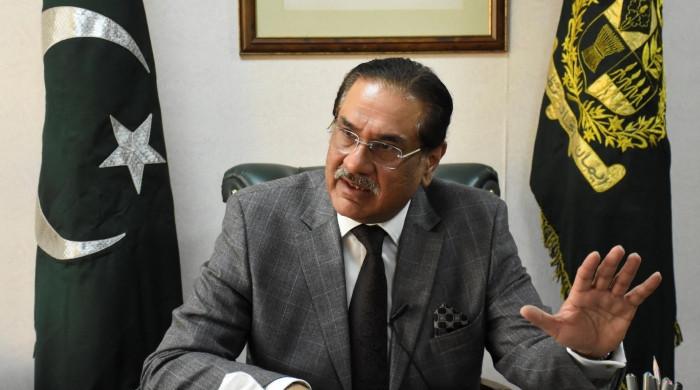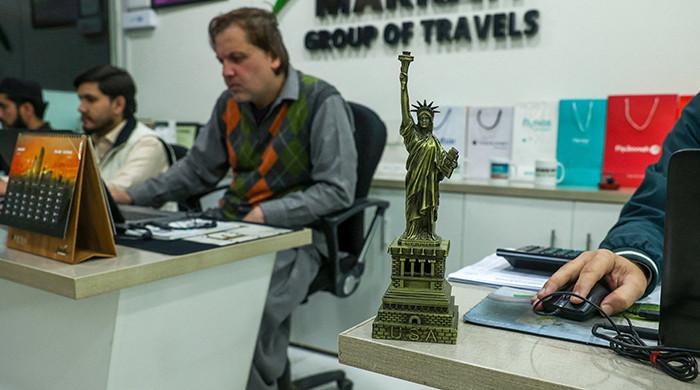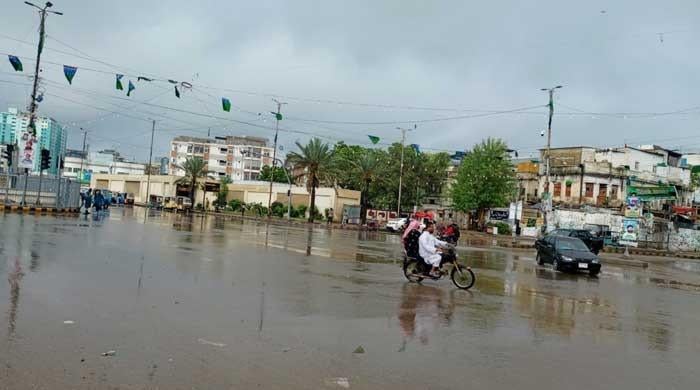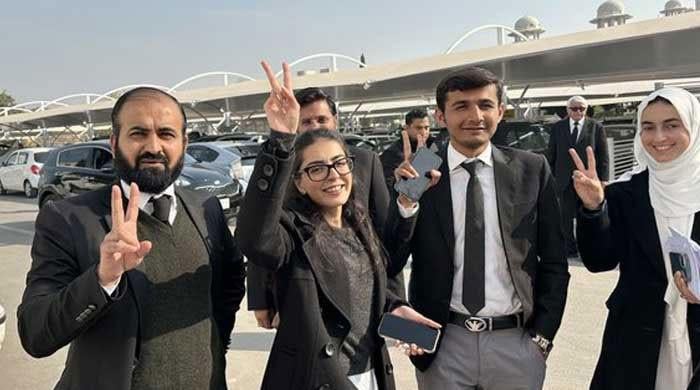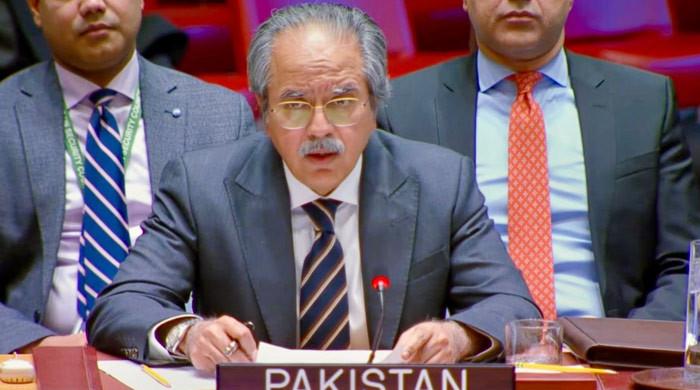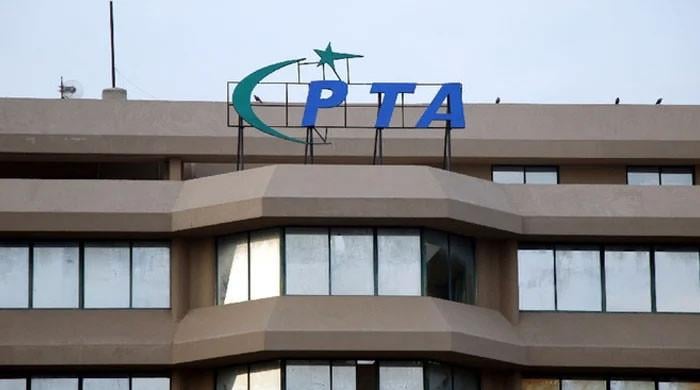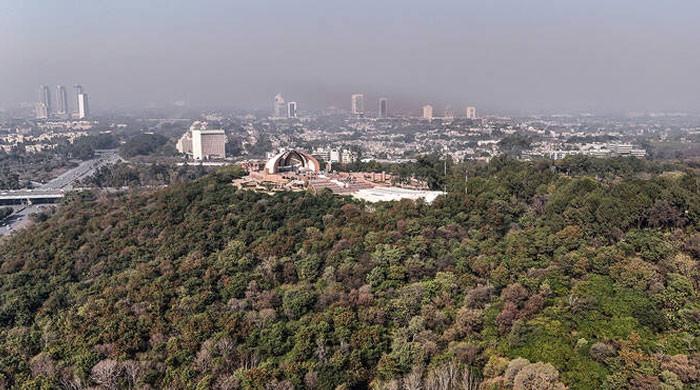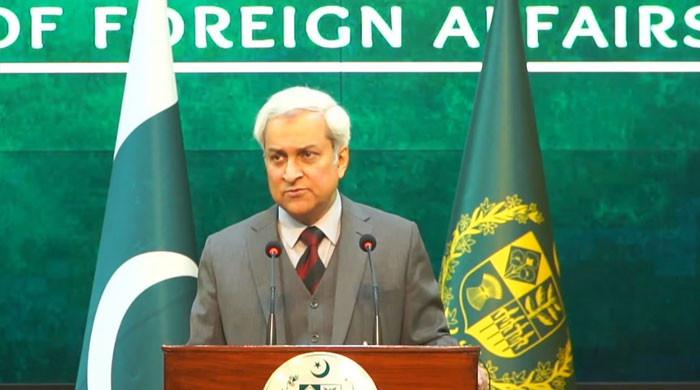Pakistan disproved India's conventional warfare superiority: PM
Heirs of martyred armed forces members to be awarded up to Rs18m based on their rank, announces premier
May 22, 2025
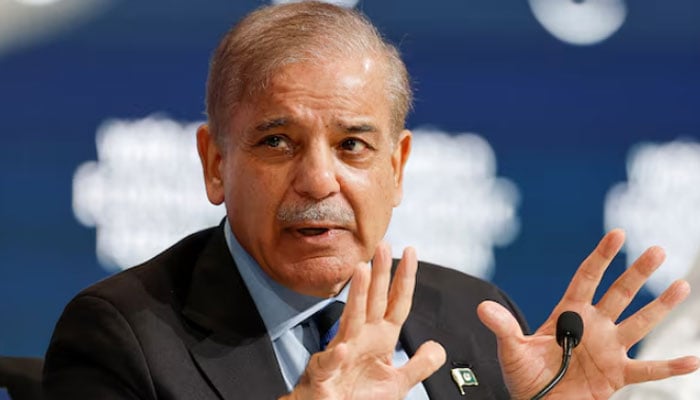
- Consequences of Pak-India war could have been dire, says PM.
- Says New Delhi made baseless allegations against Islamabad.
- India will now think 100 times before attacking Pakistan, he says.
Prime Minister Shehbaz Sharif said on Thursday that the perception of India's superiority in conventional warfare was proven wrong by Pakistan during the recent war between the two nuclear powers in South Asia.
The prime minister made the remarks while addressing a ceremony for distribution of compensation cheques among the families of those martyred in recent Marka-e-Haq – the recent Pakistan-India war — in Muzaffarabad.
A war broke out between nuclear-armed Pakistan and India, and it could have taken a dangerous turn, he added. “The consequences of the war could have been dire,” said the premier.
Calling the Pahalgam incident “regrettable”, the premier reiterated that New Delhi made baseless allegations against Islamabad.
PM Shehbaz said that the government convinced the international community that India's allegations were based on lies, and the Pahalgam incident was part of India's conspiracy.
He maintained that Pakistan proposed an impartial international investigation into the Pahalgam incident, but India ignored the offer and attacked Pakistan.
Shehbaz added that Pakistan's armed forces gave a befitting response to Indian aggression and shot down six IAF fighter jets instead of targeting the civilian population.
“A measured response was given to India while exercising the right to self-defence,” the premier added.
“Prime Minister Narendra Modi-led Indian government would now think a hundred times before attacking Pakistan again.”
It is pertinent to mention here that Pakistan's armed forces launched a large-scale retaliatory military action, named 'Operation Bunyan-um-Marsoos', and targeted several Indian military installations across multiple regions in response to the unprovoked strikes on the night between May 6 and 7.
The strikes, described by officials as "precise and proportionate", were carried out in response to India's continued aggression across the Line of Control (LoC) and within Pakistan's territory, which New Delhi claimed were aimed at "terrorist targets".
Pakistan downed six fighter jets, including three Rafale, and dozens of drones. After around 86 hours, the war between the two nuclear-armed nations ended on May 10 with a ceasefire agreement brokered by the United States.
The military confrontation between the two countries was triggered by last month’s attack in Indian Illegally Occupied Jammu and Kashmir (IIOJK) that left 26 tourists dead, with India blaming Pakistan for the attack without offering any evidence.
Compensation package for war victims
PM Shehbaz also announced a compensation package for civilians and military personnel affected during the recent war with India.
Under the compensation package, PM Shehbaz said that heirs of each martyred civilian would be awarded Rs10 million, while the injured would get Rs1 to Rs2 million each.
Heirs of martyred armed forces members would be given Rs10m to Rs18m based on their ranks, he said, adding that up to Rs42m would be given to the families for housing.
“Martyrs’ families will receive the full salary until the soldier’s retirement date, free education for children through graduation, and a Rs1m marriage grant for one daughter. Each injured personnel would receive between Rs2 and Rs5 million,” the premier added.




